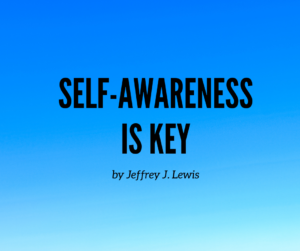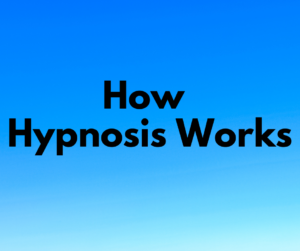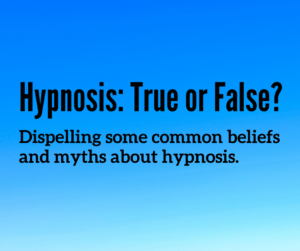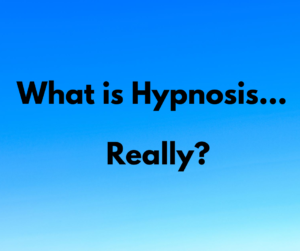
hypnosis or magic?
Are you looking for hypnosis or magic? I ask this question because I get a lot of calls from people who are apparently looking for magic. They seem to think that hypnosis is some kind of magic that will make all their problems go away in one easy session. This type of thinking only results in frustration and disappointment. Hypnosis is not magic, although it can produce positive results that seem magical. This is because it addresses the root cause of a person’s problem, not just the symptoms. The symptoms are not the problem, they are the side-effects of the problem. Until you treat the actual root cause, the symptoms will continue.
During my first session with a new client I always take the time to explain what hypnosis is, and more importantly, what it’s not. Most people get it. However, some will sit there, nodding in agreement during the entire process, yet my explanation seems to go in one ear and out the other. They’re stuck on what they think hypnosis is and simply refuse to open their minds to the truth. Consequently, they don’t get the results they expected. Then they decide that either hypnosis doesn’t work, or that I don’t know what I’m doing – both of which are false. Unfortunately, those type of people won’t even take the time to read this post; to do so would require some effort on their part. So I’m writing this post to set the record straight for those who do choose to read it.
hypnosis is not a quick fix
Let me start with the false notion that it only takes one or two sessions to fix any problem with hypnosis. I believe that a lot of people have experienced physical therapy at one time or another. I’ve used them on more than one occasion myself. Not once did a single session take care of the problem. It required multiple sessions. Did I find this unusual? Not at all. In fact, if they would have pushed me out the door after only one session, I would have been very upset. It’s exactly the same with hypnotherapy. The prefix “hypno” does not imply that it only takes one or two session to correct your issue. It is still therapy, and as such, it may well require multiple sessions, just like physical therapy. Although there are occasions where only one session is needed, it is not typical. The only issue I’m aware of that can be treated in one session, is a phobia.
Hypnosis is a joint therapeutic process. I do my part and the client has to do their part. Still, I get people who think all they have to do is come in, sit down in my recliner, and let me guide them into a hypnotic state. Then Voila!… when they come out of it, they’re all fixed up! Well, that would be magic, not hypnosis. For those people I recommend that they buy a ticket to Las Vegas, and go watch David Copperfield. Copperfield is an illusionist. He makes something that is not real, look real. And he’s very good at it. Hypnosis is not an illusion; it’s real. Hypnotherapy is a legitimate, highly effective mode of therapy that requires both the therapist and the client to actively participate in the process to get the desired results.
Learn the Methods… then USE them
I always teach my clients methods that they can use on their own to help alleviate their suffering, but those methods won’t work if they don’t use them! Again, hypnosis is a joint therapeutic process that requires both parties to do their part. It’s not magic. I also give most of my clients a CD. This CD is a Progressive Relaxation audio I made that is beneficial to most any issue. Those who listen to it always report how relaxed it makes them feel. Listening to a CD requires absolutely no effort on the client’s part. Yet, I will occasionally ask a client if they listened to it, and they just shake their head. It’s unbelievable. The bottom line is this: I can’t help anyone who refuses to help themself.
A few years ago I had a client come in for help with what he called anxiety. Anxiety is easily treatable with the methods I use, and usually requires 3-5 sessions. But this client was used to going to therapists – he was already going to 2 different ones. Because he wasn’t getting any results from either of them, he came to me. I took him through my standard anxiety treatment protocol. He improved a little but there was something missing. He still wasn’t where I wanted him to be. I realized that his main problem was that he was in a bad relationship but wouldn’t (or couldn’t) make the decision to end it. He was looking for someone else to make the decision for him, thus avoiding the responsibility. I ultimately told him that I don’t do long-term therapy and released him.
Accept Personal Responsibility
People who have the mindset that it has to take a long time to get rid of their problem, are looking for someone else to make their decisions for them. They don’t want to accept responsibility for their own life. Counseling won’t help, and neither will hypnosis. The bulk of the responsibility always lies with the client. Again, they’re looking for magic, they want someone else to make their decisions for them so they don’t have to be responsible for the outcome. That’s not my job. No matter what the problem is, my job is to help the client to see their problems from a different perspective. This is the first step. Then it’s up to them to choose a better option that will more effectively alleviate their problem. There’s really nothing magical about it. It’s all a matter of examining different options, and acting on the most suitable one.
Hypnosis can help a person think more clearly. It can assist in examining options. In addition, it can expose limiting beliefs and perspectives that are standing in the way of progress. Hypnosis deals more with how you think rather than what you think. Compared to conventional therapy it works much faster because it doesn’t get bogged down in the details of the story. The details are irrelevant. How a person is processing those details is what matters most. You can continue to think the same way about your problems, and continue suffering. Or you can follow the protocol and change the way you think, and get better. It’s not magic.







